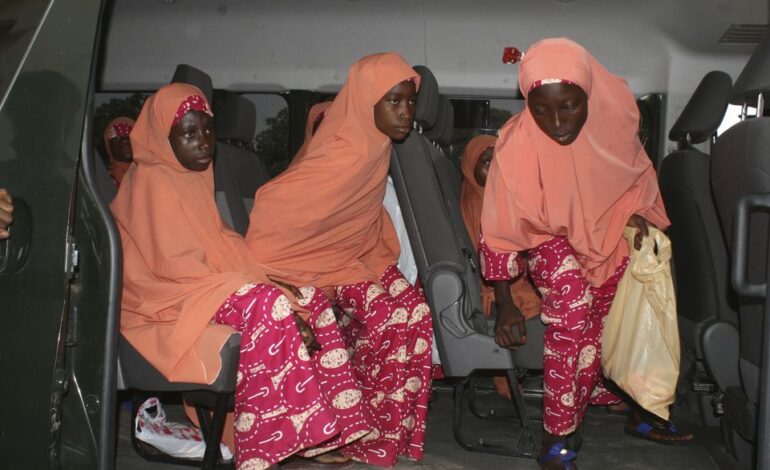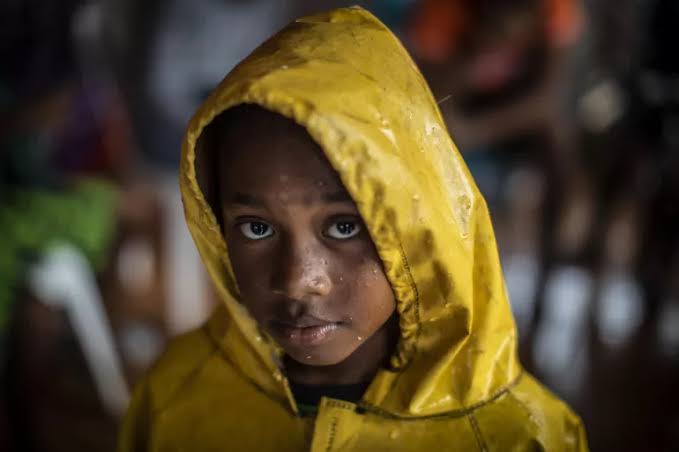
Faith Nyasuguta
Parents of more than 130 Nigerian school children who were rescued after more than two weeks in captivity have expressed overwhelming joy as they finally reunited with their loved ones.
The heartwarming meeting took place at a government facility in Kaduna, where the children are receiving essential medical support. Their abduction, which occurred on March 7th when armed gunmen seized them from their school in the remote town of Kuriga in northwestern Kaduna state, had left families distraught and anxious for their safety.
Shittu Abdullahi, whose 14-year-old daughter was among those kidnapped, couldn’t contain his happiness after the emotional reunion. “I am very happy and filled with joy,” he expressed, echoing the sentiments of many other relieved parents who had long awaited this moment.
The children, ranging in age from under 10 to 15, were rescued by the Nigerian military from a forest approximately 200 kilometers away in neighboring Zamfara state. Following their rescue, they were immediately provided with medical support by both military personnel and government authorities.
However, the joyous reunion was tinged with sadness as it was revealed that one staff member who was taken along with the 137 students tragically lost their life while in captivity. Despite this somber reality, the parents expressed immense gratitude for the safe return of the majority of the abducted children.
Ibrahim Mikalu, another parent, tearfully embraced his 13-year-old daughter, expressing relief and gratitude for her safe return. Like many others, he anxiously awaited the day when his daughter would finally be able to return home and resume her normal life.
Despite the children’s rescue, uncertainty still lingers regarding when they will be allowed to return home to their families. The local authorities have remained tight-lipped about the situation, failing to provide any clear timeline for the children’s release.

However, the parents have been reassured by promises from the government that their children will be allowed to return home soon.
The kidnapping of the schoolchildren is just one in a series of mass abductions that have shaken Nigeria in recent years. Authorities have confirmed that no ransom was paid for the children’s freedom, but have provided limited details about the rescue operation. Additionally, no arrests have been made, leaving many questions unanswered about the circumstances surrounding the abduction and subsequent rescue.
While no group has claimed responsibility for the kidnapping, it is widely believed to be the work of bandit groups notorious for their mass kidnappings and extortion activities in Nigeria’s conflict-affected northern region.
The prevalence of such incidents has contributed to a sense of insecurity and fear among communities, particularly in remote areas where security forces have limited presence.
The abduction of schoolchildren has become distressingly common in Nigeria, with over 1,400 students kidnapped since the notorious 2014 abduction of 276 schoolgirls by Boko Haram militants in Chibok, Borno state.
These incidents have predominantly occurred in the country’s northwestern and central regions, where armed groups frequently target vulnerable communities for ransom and other nefarious purposes.
Despite government efforts to address the security challenges facing the country, including deploying military personnel to combat insurgency and banditry, the threat of abduction and violence continues to loom large.
The lack of arrests and prosecutions of perpetrators has further fueled concerns about the effectiveness of Nigeria’s security apparatus in protecting its citizens and ensuring their safety.
As the rescued schoolchildren and their families begin the process of healing and recovery, there is a pressing need for greater efforts to address the root causes of insecurity and violence in Nigeria.
This includes addressing issues such as poverty, unemployment, and social inequality, which often fuel criminal activities and exacerbate existing tensions within communities.
RELATED:




